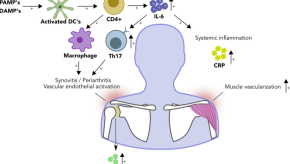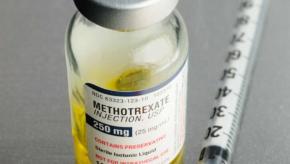Blogs
Advancing PMR
Even though polymyalgia rheumatica is not perceived by many physicians as a severe diagnosis, its diagnosis and management actually propose significant challenges. I'd like to talk about those challenges, and what directions our path forward can include to advance our understanding and improve the treatment of patients who have PMR.JAKi for PMR: Safe, or a Concern for Older Adults?
JAK inhibitors obviously have dominated a lot of the discussion in our therapeutic landscape over the last couple of years. What about their use in polymyalgia rheumatica? Let's consider.When PMR Strikes Young, It Hits Hard
Narratives around polymyalgia rheumatica (PMR) often centre around “older people” or even “elderly”. And, indeed, the peak of the age distribution is in the mid-70s – not that everyone that age considers themselves old. Treating “young PMR” can be a very different proposition to treating someone in their seventies or eighties. It’s worth taking time to think this through.Impact of glucocorticoids: more than just toxicity
As the sole effective treatment for polymyalgia rheumatica since their development in the 1950’s until recently, the impact of glucocorticoids and PMR outcomes are undeniably intertwined. So much so that when the OMERACT PMR working group first set out to develop a PMR core outcome set, they quickly realised that many of the outcomes important to patients were related to their glucocorticoid use.














